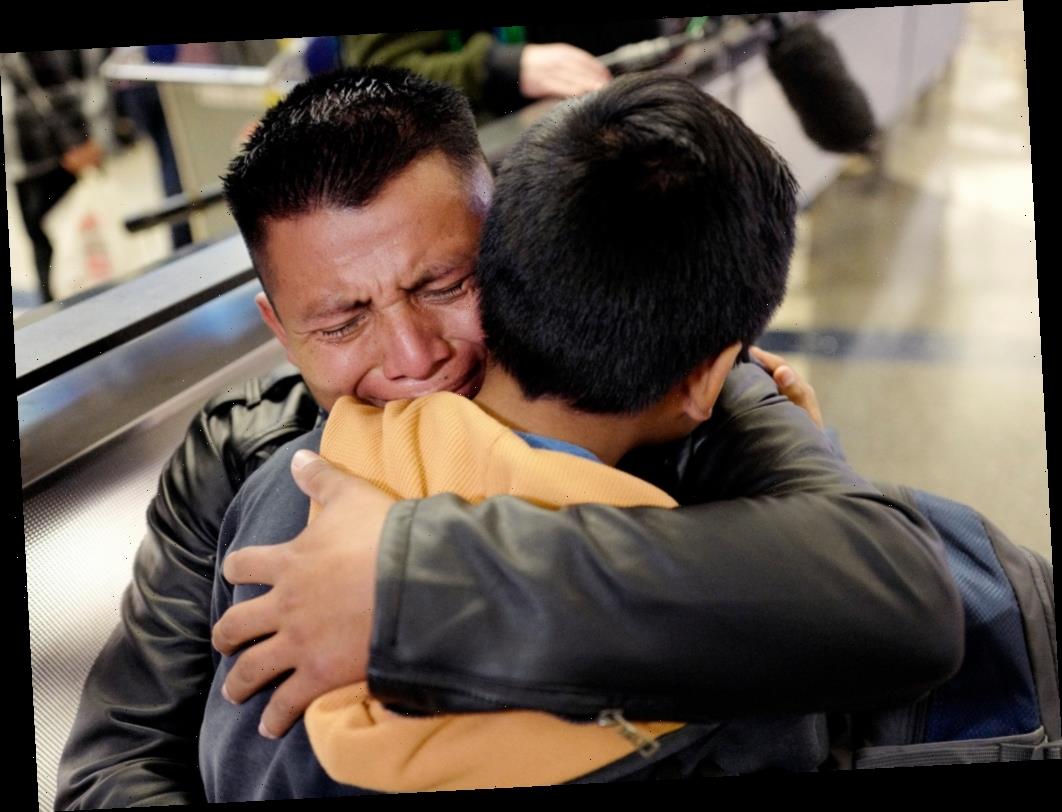Over the past several years, we’ve been outraged that at least 5,400 children were separated from their families at the Mexican border since 2017, as part of former President Donald Trump’s zero-tolerance policy for asylum seekers. While the American Civil Liberties Union announced in November that it had been unable to locate about 600 parents who were separated from their children at the border, fortunately many of these families have been reunited. But even after being brought back together, the trauma of what they endured has lasting effects. Ana and Isaí’s family is one of these families.
In The Long Shadow of Family Separation, one of the articles in The Nation’s first-ever special issue on parenting called “Parenting as a Radical Act of Love,” journalist Maritza Lizeth Félix talks to a family of four from Guatemala who are still reeling from their experience.
In July 2018, the family made the difficult decision to leave their home country because of the violence and intimidation they were experiencing there. Dad Isaí and 9-year-old son Envil would travel first, with mom Ana and 5-year-old daughter Herlin coming next. Hopeful about their a new life, their destination was an uncle’s home in Tennessee.
In June 2018, Isaí and Envil arrived at the Arizona border to seek asylum in the United States and were placed in a cold, dirty, and packed detention center. Shortly thereafter, Envil was separated from his father, eventually ending up in a shelter in New York. Envil and Isaí spent 40 days apart.
“They told me that I would never see [Envil] again, asked why I had brought him, told me that it was my fault,” Isaí told The Nation. “I did not know how to tell [Ana] that they took our son from me, how to explain to her that I had lost him.”
On Envil’s side, he was being told the opposite. “They told me that my dad didn’t love me, that he had abandoned me, that he would never come back,” Envil said.
Eventually, more than a month later, the father and son were reunited in Arizona. When the children arrived on buses, Isaí saw that they were dirty and bruised. Guards told the kids to point out their parents, and Envil ran to Isaí. “The children were crying, and some of them said to their parents, ‘I don’t love you anymore. Why did you leave me?’” Isaí remembered.
Though he had his son back, Isaí says a different boy had emerged. While before Envil was curious, friendly, and laughing, now he looked gray, thin, and haggard, “as if something had escaped his body,” writes Félix in The Nation.
Last February, Physicians for Human Rights published a report based on in-depth psychological evaluations of 26 asylum seekers — nine children and 17 adults — who were separated under the policy. Medical experts documented psychological trauma, including post-traumatic stress disorder, depression and anxiety, and noted in nearly every case that the trauma suffered by the parents and the children warranted further intervention and ongoing therapeutic support.
“The reunification was not at all the solution or the treatment,” said Dr. Ranit Mishori, PHR’s senior medical advisor and coauthor of the report. “The trauma remains.”
Ana and Herlin were luckier, arriving at the Texas border a couple of weeks after a federal judge ordered a halt to family separations. They were kept in custody for 20 days but together the whole time, and were joined Isaí and Envil in Tennessee at the end of the summer.
Ana immediately noticed a change in Envil as well. He was afraid they’d be separated again, which kept happening in his dreams; Envil would tell them, “Hold me — I’m afraid to wake up and see that you are not here again. Don’t leave me again, please.”
Two years after the separation, Envil, now 12, is still afraid and angry. “If only Trump could feel what it is like to be separated from someone you love so much,” the tween said, remembering the hypothermic nights, the lice, the worms in his belly, his fear, and his sorrow. “He needs to pay for what he did to me, to other children.”
“I don’t think he will close this wound,” his dad said. “He has been strong, but this hurt him so much. I tell him to put this trauma aside, and he tells me, ‘Daddy, I can’t.’ Neither can I.”
In a study published in the American Journal of Orthopsychiatry that collected data on PTSD symptoms, depression, anxiety, and psychological well-being in 165 refugees, the trauma caused by family separation threatened mental health as much as the atrocities experienced in the countries they were fleeing.
“We were surprised to find that family separation was on par with beating and torture in terms of its relationship to mental health,” said Jessica Goodkind, PhD, one of the authors of the study and a professor in the department of sociology at the University of New Mexico. “This tells us that family separation is one of the driving factors that creates psychological distress.”
“We need to be advocates for the refugees,” said Claudette Antuña, PsyD, one of more than 375 psychologists and other mental health professionals who are part of the Refugee Mental Health Resource Network. Her pro bono evaluations have helped hundreds of immigrants obtain asylum or other forms of legal relief to stay in the United States. “There is greater demand than ever for psychologists who can do this work.”
Source: Read Full Article

